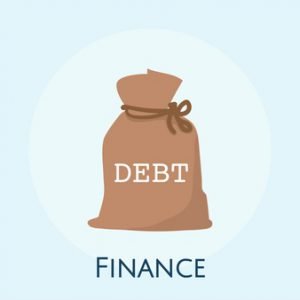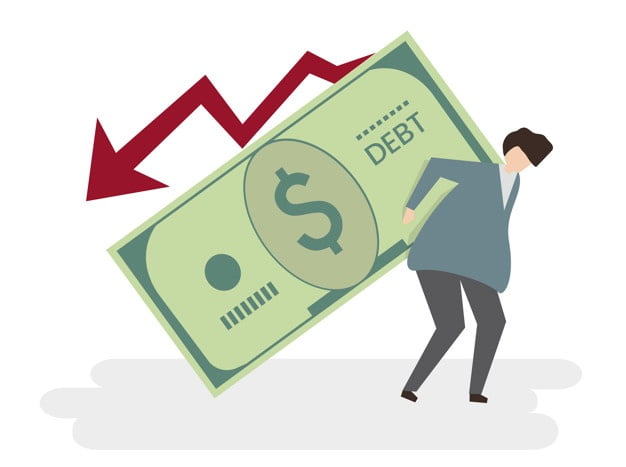Bankruptcy is the legal process pertaining to people who cannot afford to pay their remaining debts in order to get a chance to a fresh start. The Bankruptcy laws offer unburdens overwhelmed debtors who are unable to pay their outstanding balances and, at the same time, help the creditors get paid from whatever kind of assets the debtor has no need for. Bankruptcies are often used as a last resort but it is not a sure way to solve all your financial problems. It will cover only certain debts that are eliminated when you file for bankruptcy.
What is a Discharge?
A discharge enables the debtor to be free of debt and prevents the creditors from taking collecting actions against the debtor. In simpler terms, the debts are wiped out and the debtor no longer needs to pay those that are discharged.
However, while most debts can be discharged, not all kinds of debts are removed when you declare bankruptcy.
What are the Debts that can be Discharged?
 In a bankruptcy, “Common Categories of Dischargeable Debts,” states that the debt must meet the qualifications and timing requirements. It works by filing for bankruptcy in the bankruptcy court before and after the case described as follows:
In a bankruptcy, “Common Categories of Dischargeable Debts,” states that the debt must meet the qualifications and timing requirements. It works by filing for bankruptcy in the bankruptcy court before and after the case described as follows:
- Pre-filing debt – is a pre-petition debt obligation that you have before you file for bankruptcy. When the case ends, the court will wipe out or discharge the debts included and qualified in the pre-petition debt such as credit card balances, medical debt, and personal loans.
- Post-filing debt – are the debts and bills you need to present to the court that you incurred after submitting the pre-petition debt. In all kinds of bankruptcy cases. You are still obligated to pay for the balances the you incur even if the case isn’t over.
Among all the debts obtained, only those debts that you have before filing bankruptcy will be discharged. As for the subsequent debts, you still need to repay those. Take note that if you either fail to follow the bankruptcy process or your debt doesn’t qualify for a discharge, then these can be barriers for you to have your debts wiped out.
Common Categories of Dischargeable Debt
Under the Bankruptcy Code, there are 19 categories of debt that are not capable of being discharged. Everything else not included can be wiped out. However, you need to be mindful that misconduct or fraud in connection to the debts are grounds to make them non-dischargeable:
- Charges of credit cards (including overdue and late fees)
- Collection agency accounts
- Medical bills
- Personal loans
- Utility bills
- Dishonored checks (except if fraudulent)
- Student loans (in cases where it is proven that you endured undue hardship)
- Repossession deficiency balances
- Auto accident claims (except DUI related cases)
- Business debts
- Rent debts (including past rents that are due)
- Civil court judgments
- Tax penalties and unpaid taxes
- Attorney fees (except those pertaining to child support and alimony cases)
- Revolving charge accounts
- Social security overpayments
- Veterans assistance loans and overpayments
Non-Dischargeable Debts in Bankruptcy Chapter 7
There are different types of Bankruptcy, some debts are nondischargeable in Chapter 7 but can be wiped out in Chapter 13. These types of debts in Chapter 7 are automatically deemed as nondischargeable without needing a hearing in court:
- Unscheduled debts (all kinds of debts that are not in the bankruptcy petition), with the exception that the creditor had actual knowledge or notice about such filing
- Certain taxes
- Spousal or child support debts or alimony
- Debts owed to former spouse or child if they arose out of a divorce or separation
- Fines, penalties and debts to government agencies
- Student loans (if not exempted)
- Personal injury debts caused by the debtor driving a motor vehicle while under the influence of alcohol
- Certain tax-advantaged retirement plans debts
- Certain condominium debts or cooperative housing fees (such as homeowners association fees)
- Attorney fees in child custody and support cases
- Court fines and penalties, including criminal restitution
Debts not Dischargeable if the Creditor Objects
Not all debts are automatically wiped out. The creditors must ask the bankruptcy court first to know whether or not such debts can be discharged. If the creditors do not raise any objection or issue or if they do but the court doesn’t allow it, these debts are discharged.
- Credit card purchases for luxury goods
- Cash advances
- Debts obtained by fraud or false pretenses
- Debts incurred due to willful and malicious injury
Planning to file for a Chapter 7 Bankruptcy?
While declaring bankruptcy and bankruptcy filing may be done by any person without a bankruptcy lawyer, you will be responsible for fully understanding everything related to the law. We at Allmand Law are experienced in the field of bankruptcy cases. If you want to know how to file for bankruptcy but you are not sure of what bankruptcy form to avail or maybe you’re worried about potential liabilities, our bankruptcy attorneys can help you. We may be able to answer such questions for you including bankruptcy exemptions, debt settlement, insolvencies, mortgage payments, debt management and many more. Call us now for free legal advice.
